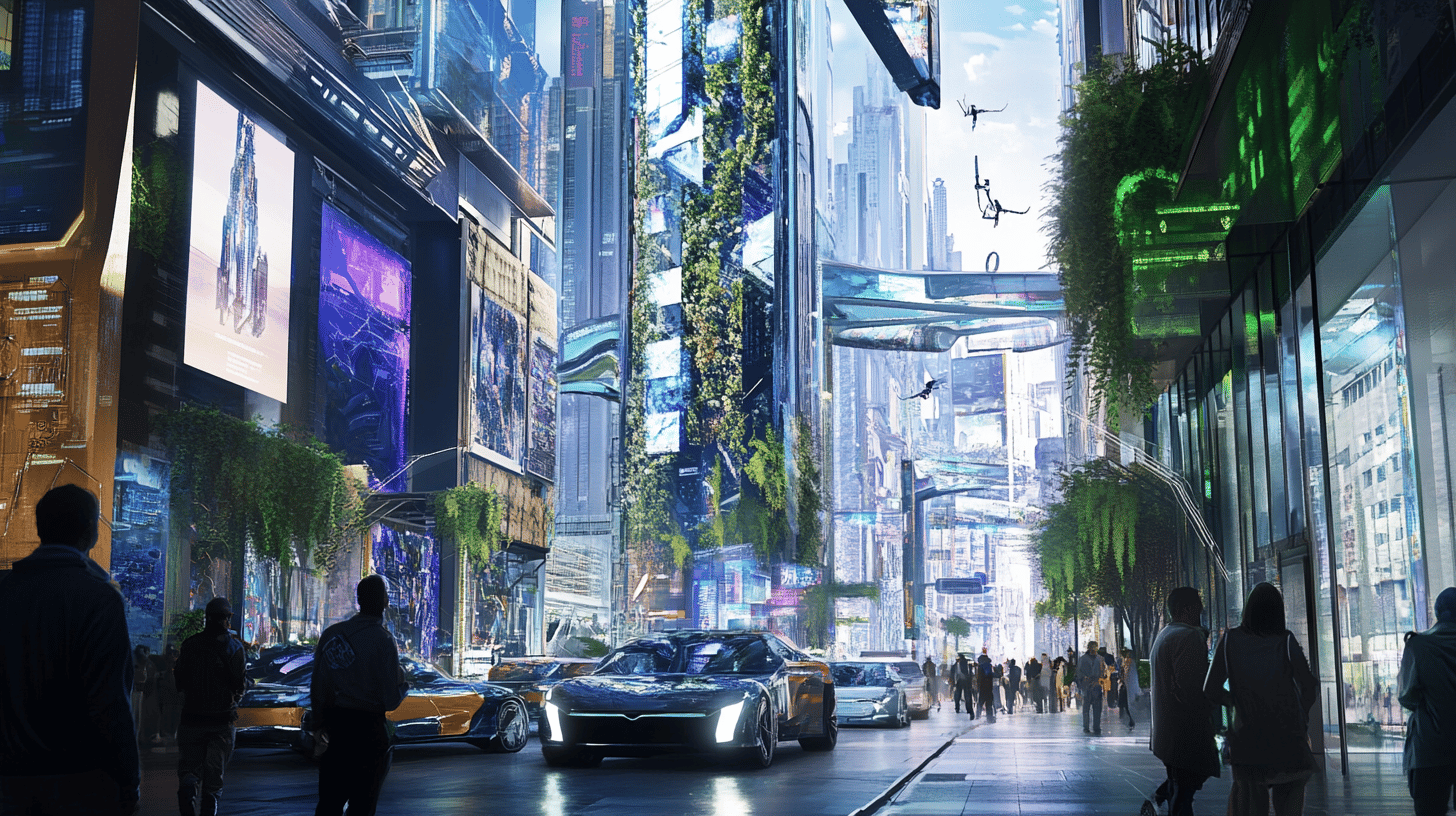Technology is constantly evolving, shaping and transforming the way we live, work, and connect with each other. In 2025, several innovations are set to become more prominent, impacting different industries and the job market as a whole. In this article, we will explore the main technologies that are revolutionizing the current scenario and what we can expect in the near future.
1. Artificial Intelligence (AI) in Action
Artificial Intelligence continues to be one of the most fascinating and pervasive areas of the technology industry. With the advancement of machine learning algorithms, virtual assistants and automation tools are becoming increasingly sophisticated. This not only improves operational efficiency in businesses but also personalizes experiences for users across multiple platforms.
In the customer service sector, for example, AI-powered chatbots can interact with customers in a human-like manner, answering questions and offering immediate solutions. This technology not only reduces operational costs but also improves customer satisfaction, as responses are instantaneous.
2. The Autonomous Vehicle Revolution
Autonomous vehicles are on a meteoric growth trajectory. According to recent estimates, a significant number of autonomous vehicles are expected to be on the road by 2025. This technology promises not only to improve road safety—by reducing the number of accidents caused by human error—but also to transform urban mobility by reducing congestion and improving transportation efficiency.
Additionally, companies like Tesla and Waymo are investing heavily in research to improve navigation and environmental awareness. This could lead to a future where transportation is not only safer, but also more accessible for people with reduced mobility.
3. Internet of Things (IoT)
The Internet of Things refers to the interconnection of devices via the internet, allowing them to communicate and exchange information. By 2025, IoT is expected to be ubiquitous, affecting everything from smart homes to automated factories.
Home devices such as thermostats, refrigerators and security systems are becoming more intelligently interconnected, enabling more efficient control of energy consumption and increasing home security. In industry, IoT is being used to optimize operations, predict machinery failures and increase productivity through real-time monitoring.
4. Augmented Reality (AR) and Virtual Reality (VR)
Augmented Reality and Virtual Reality are establishing themselves as indispensable tools in a variety of industries, including education, entertainment, and retail. For example, AR is transforming the way we interact with products before we even buy them. With the use of AR apps, consumers can visualize products in their own homes, making the shopping experience much more engaging and interactive.
In education, VR technologies are enabling fully immersive learning experiences, where students can travel back in time to experience historical events or perform hands-on simulations in controlled environments, something that could substantially reduce the costs of implementing laboratories.
5. Sustainable Technologies
With growing concerns about environmental issues, innovations in sustainable technologies cannot be ignored. By 2025, solutions such as solar power, wind turbines, and carbon capture technologies are expected to become more affordable and efficient. These technologies not only help combat climate change but also promote energy independence by allowing businesses and households to manage their own energy.
6. Blockchain and Digital Security
Blockchain, traditionally associated with cryptocurrencies, is emerging as a key technology for increasing digital security and transparency across a range of industries. By 2025, we could see wider adoption of blockchain to manage sensitive data, track supply chains, and ensure secure transactions.
Additionally, combating fraud and identity theft is a growing focus as companies invest in technologies that more robustly protect consumer data. The use of encryption and decentralized systems offers a level of security that traditional banking and conventional solutions cannot match.
7. Advances in Biotechnology
Biotechnology is booming, especially in the healthcare and pharmaceutical sectors. By 2025, innovations in genetic engineering and gene therapy could revolutionize the treatment of chronic and genetic diseases. Technologies such as CRISPR are constantly being refined to offer therapeutic options for conditions previously considered incurable.
In addition to improving disease treatment, these technologies are also being used in the development of genetically modified foods that can provide better nutrition and resist pests, contributing to more sustainable agriculture.
8. 3D Printing as a Manufacturing Tool
3D printing has become a game-changing technology in a variety of industries, from prototype production to on-demand manufacturing. By 2025, 3D printing is expected to be widely adopted, with the ability to create products directly in the factory, reducing production times and costs.
This technology not only encourages mass customization, but also contributes to a more circular economy, where products can be manufactured and reused, reducing waste.
Conclusion
The technologies that are emerging and consolidating in 2025 promise to transform our society in ways that we are still beginning to understand. From Artificial Intelligence that enhances operational efficiency to innovative solutions in sustainability, each of these innovations brings with it new opportunities as well as new challenges. It is essential that we stay up to date and prepared to take advantage of these changes. Technology is not only reshaping our present, but also defining the possibilities of the future. So make an effort to understand and adapt to these innovations – your future may depend on it. Now, I invite you to leave your comment. Which technological innovations do you consider most impactful? Let’s discuss!



